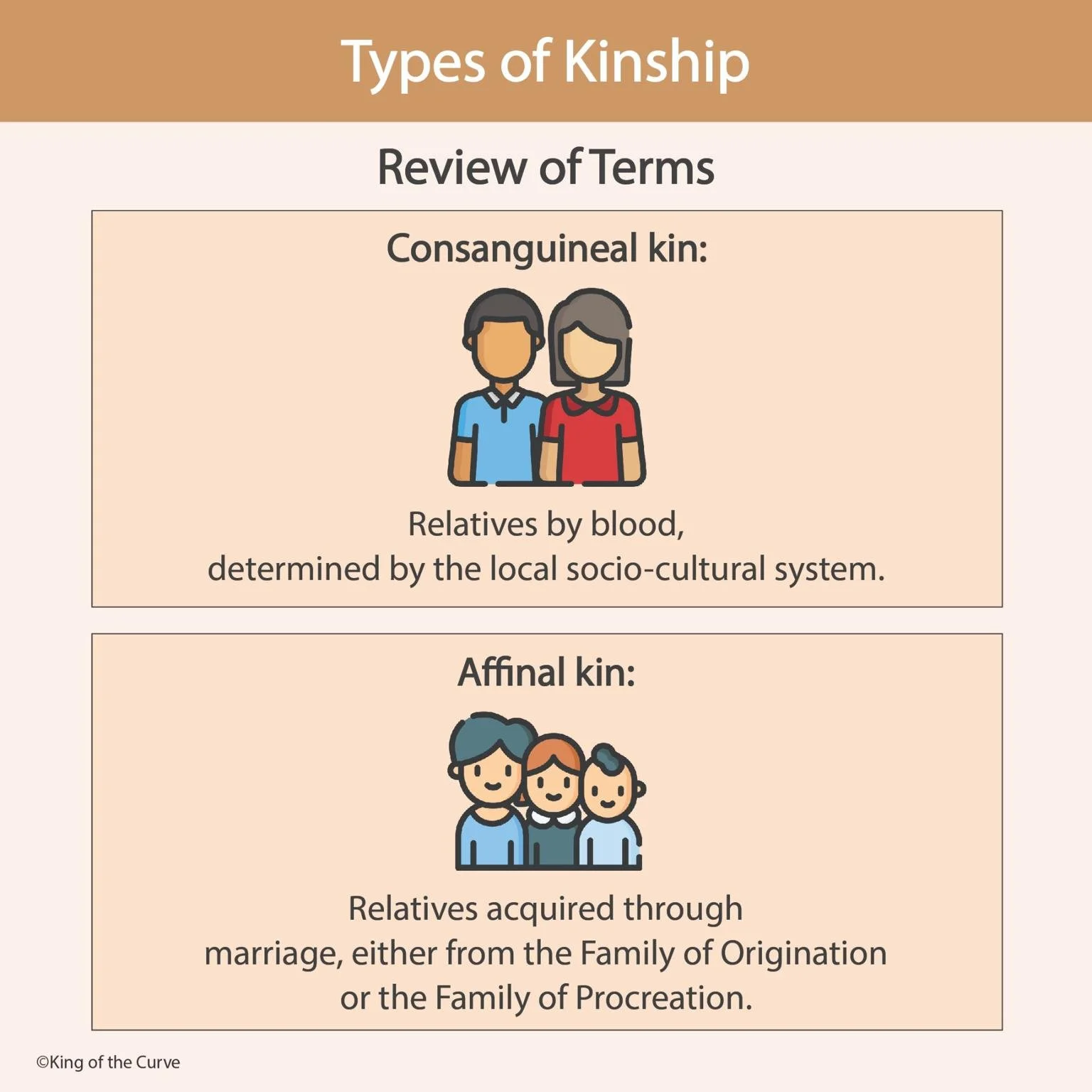🧬 Types of Kinship: Understanding Social Bonds for the MCAT
Kinship isn't just about biology—it's a foundational concept in sociology and anthropology, and it appears on the MCAT under cultural and social structure topics. Understanding the difference between consanguine and affinal kin helps clarify familial roles, inheritance, and even patient social support in healthcare contexts. Let’s break down these key terms for your MCAT prep.
👨👩👧 What Is Kinship?
Kinship refers to the network of social relationships that form an important part of the lives of most humans in most societies. It defines how individuals relate to each other in familial terms.
Consanguineal Kin
Relatives by blood, such as parents, siblings, or children, defined by the local socio-cultural system.
Affinal Kin
Relatives acquired through marriage—either from the Family of Orientation or the Family of Procreation.
💡 MCAT Tip: Kinship questions may appear in the context of social institutions or cultural norms. Be prepared to apply these definitions to family roles, healthcare support, or societal structures.
👶 MCAT-Relevant Scenarios
| Scenario | Kinship Type | Example MCAT Response |
|---|---|---|
| A child lives with their aunt and uncle who are their father's siblings. | Consanguineal | Identify the blood relation and family support system. |
| A nurse asks about a patient’s spouse’s medical history. | Affinal | Understand this is a relationship formed by marriage. |
| A grandmother raises a child as the primary caregiver. | Consanguineal | Recognize the biological relation and caregiving role. |
| A person lists their stepfather as their emergency contact. | Affinal | Determine the marital connection and role in care. |
🧠 Strategy for MCAT Success
Know that kinship questions often test your ability to differentiate relationship types.
Be aware of how kinship affects caregiving, inheritance, and cultural expectations.
Practice applying kinship terms in passage-based questions involving family units.
📝 MCAT Sample Question
Q: A student describes their godparents as close family even though they are not biologically related. In sociological terms, how would this relationship be classified?
A. Consanguineal kin
B. Affinal kin
C. Fictive kin ✅
D. Cohabiting relatives
Rationale: Since godparents are not related by blood or marriage but play a family-like role, this is a classic example of fictive kin, a culturally recognized but non-biological tie.
🧭 Summary
Consanguineal kin are blood relatives.
Affinal kin are relatives by marriage.
These terms appear in MCAT questions involving family, culture, and social support.
📱 KOTC Tools for Kinship Mastery
✅ Visual Flashcards on Kinship
🎯 Practice Quizzes for MCAT Sociology
📚 Download the Kinship Infographic Set
Frequently Asked Questions (FAQs)
-
Aim for 4-6 focused hours, ensuring you incorporate breaks to avoid burnout.
-
Practice mindfulness techniques, take practice exams under realistic conditions, and maintain a balanced lifestyle.
-
Set short-term goals, seek support from mentors, and reward yourself for small achievements.
-
Regular exercise improves focus, reduces stress, and enhances overall mental clarity.
-
KOTC offers personalized learning tools, gamification features, and adaptive question banks to help students stay on track without burnout.


